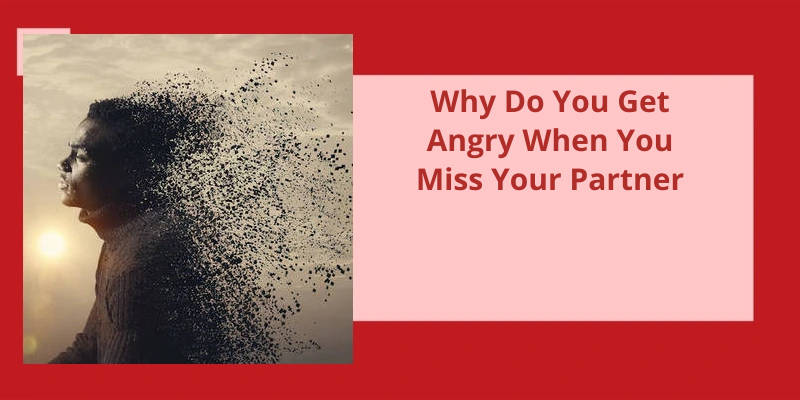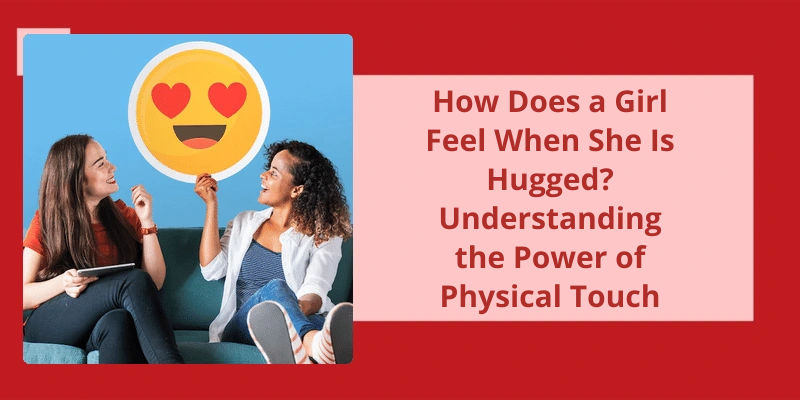Many people experience a surge of frustration and anger when they miss their partner's presence. It may seem perplexing to feel such intense emotions towards someone you deeply care for, but experts suggest that these feelings stem from a sense of 'abandonment' when your partner isn’t around for an extended period of time. When you long for their companionship and they aren’t there to fulfill that need, it can trigger a primal instinct to protect oneself from potential harm. Anger, in this context, becomes a defense mechanism, allowing you to cope with the perceived loss and protect your emotional well-being. Additionally, anger is often easier to express than a whirlwind of mixed emotions that may arise when you miss someone dearly. Rather than dealing with the complexity of love, longing, and vulnerability, anger serves as a convenient outlet. However, it’s important to note that while anger may temporarily provide relief, it can also detract from the sweet and tender feeling of loving someone so much that their absence hurts.
Why Do I Get Angry When I Miss My Boyfriend?
Why do I get angry when I miss my boyfriend? When you miss your boyfriend, your longing may translate into frustration or anger. This often happens when you cant communicate with him . His absence may lead you to feel complicated feelings, and anger is one of them. It’s natural to feel upset or angry when you cant be with the person you love, especially when there’s a lack of communication.
Anger can also be a defense mechanism. When we miss someone, we may choose to push them away or become angry towards them to protect ourselves from the pain of their absence. By getting angry, we try to distance ourselves emotionally and convince ourselves that we don’t need them. This is a way of protecting our vulnerable emotions.
When you’re apart from your partner, you may feel like you’ve less influence or control over the situation. This loss of control can lead to feelings of frustration and anger.
It’s important to communicate and address these feelings with your partner in a healthy and productive manner to ensure a strong and supportive relationship.
The Impact of Attachment Styles on Emotions When Missing a Partner
- Anxious attachment style: When individuals with an anxious attachment style miss their partner, they often experience intensified negative emotions such as anxiety, fear, and worry. They may constantly think about their partner’s well-being, feel insecure, and struggle with self-doubt.
- Avoidant attachment style: Individuals with an avoidant attachment style tend to feel uncomfortable and independent when they miss their partner. They may suppress their emotions, create emotional distance, and prioritize self-reliance. They may struggle to acknowledge or express their feelings.
- Secure attachment style: Those with a secure attachment style usually experience a healthy balance when missing their partner. They may feel a range of emotions but are more likely to cope effectively. They’ve trust in their partner’s love, understand the temporary nature of separation, and have confidence in the strength of their relationship.
- The impact of attachment styles on emotions when missing a partner can vary depending on various factors such as past experiences, the length of the separation, and the level of emotional maturity.
The emotions and longing that arise when you’re separated from your partner shouldn’t cause concern; they’re often a reflection of the deep connection and bond you share. It’s natural to experience a sense of emptiness or unease when your loved one isn’t by your side. So, let’s delve into the reasons why missing your partner is entirely ordinary and explore ways to cope with this longing.
Is It Normal to Miss Your Partner All the Time?
Is it normal to miss your partner all the time? If youve ever wondered, “Why cant I sleep when my partner is away” or “Why do I get anxious when my partner leaves,” don’t worry. Youre not alone. It’s perfectly normal to miss someone you love.
The reason why you feel this way is because humans are social creatures who’ve evolved to crave connection and companionship. When youre in a committed relationship, you form a strong bond with your partner, both emotionally and physically. Your partner becomes an integral part of your life and being separated from them can trigger feelings of longing, sadness, and sometimes even anger.
The intense emotions you experience when you miss your partner can be attributed to a variety of factors. Firstly, you may simply miss the physical presence and touch of your partner. Physical contact releases oxytocin, also known as the “cuddle hormone,” which can create feelings of warmth and security. When youre apart, the absence of physical touch can leave you feeling empty and craving that intimacy.
Secondly, missing your partner may also stem from a fear of missing out on shared experiences or important moments in their life. It’s only natural to feel a sense of sadness or frustration when you cant be there to celebrate a milestone or support your partner during challenging times. This can lead to feelings of anger or resentment towards the circumstances that keep you apart.
Lastly, the anticipation of reuniting with your partner may heighten your emotions. The longing to see them again can cause feelings of restlessness, difficulty focusing, and even irritability. This anticipation is often accompanied by a strong desire for closeness and connection, leading to emotional distress when you’ve to be apart.
Coping Strategies for Managing the Emotions of Missing Your Partner
- Engaging in physical activities like exercise or sports
- Practicing relaxation techniques such as deep breathing or meditation
- Seeking emotional support from friends or family members
- Keeping yourself busy with hobbies or interests
- Writing in a journal to express your feelings
- Engaging in self-care activities like taking a bath or reading a book
- Finding healthy distractions like watching movies or listening to music
- Setting goals and focusing on personal development
- Practicing positive self-talk and affirmations
- Connecting with your partner through phone calls or video chats
Source: Why It Hurts to Be Away from Your Partner- 12 Possible …
The fear of being alone: Sometimes, the pain of missing someone who’s hurt us stems from the fear of being alone. As humans, we naturally crave connection and companionship, and it can be challenging to let go of someone who’s become a significant part of our lives, despite the harm they may have caused. Additionally, feelings of loneliness and longing may overshadow the negative aspects of the relationship and make us hold on to the hope of reconciliation or redemption. The complexity of emotions: Emotions are multifaceted and not always logical. It’s possible to miss someone despite the pain they’ve caused because our emotions don’t always align with our rational thoughts. We may long for the good moments and the positive aspects of the relationship, hoping things will change for the better. Furthermore, nostalgia and the fear of the unknown can cloud our judgment and make us yearn for the familiarity of an unhealthy relationship, even at the cost of our own well-being.
Why Do I Miss Someone Even Though They Hurt Me?
We may continue to miss them because we remember the good times we’d together and hope that things can change for the better. This emotional connection can be strong and difficult to break, leading us to miss someone despite the pain they’ve caused us.
Our feelings may be tangled up with unresolved issues, such as unresolved conflicts, unaddressed apologies, or unexpressed emotions.
Additionally, our self-esteem and self-worth can play a role in why we miss someone who’s hurt us. We may internalize their actions and believe that we deserve the mistreatment, leading us to cling onto any form of attention or affection they give us, even if it’s harmful.
Furthermore, missing someone who’s hurt us can also be a result of familiarity and habit. When we’ve been in a relationship with someone for a long time, we become accustomed to their presence in our lives. Breaking that routine can be challenging, and our minds may still hold onto the familiarity of their presence, even if it was toxic.
We may fear that without them, we will be left feeling empty or lonely. This fear can fuel our longing for them, even if they’ve caused us pain.
The Role of Attachment Styles in Missing Someone Who Has Hurt Us
When we miss our partner, especially if they’ve hurt us, it can be attributed to our attachment style. Attachment styles refer to the way we form and maintain emotional bonds with others.
If we’ve an anxious attachment style, we tend to feel more anxious and insecure in relationships. When our partner isn’t present, we may experience heightened emotions and a strong desire to be reunited, even if they’ve hurt us in the past. This is because we crave the reassurance and validation they provide, and their absence can trigger feelings of abandonment and rejection.
On the other hand, individuals with an avoidant attachment style may also experience anger when they miss their partner. This is because they’ve a tendency to suppress their emotions and maintain emotional distance in relationships. When they miss their partner, they may feel frustrated and resentful for allowing themselves to be vulnerable and dependent on someone who’s hurt them.
Overall, our attachment style plays a significant role in how we experience and cope with missing a partner who’s hurt us. It influences our emotional responses and the way we perceive and navigate relationships.
Conclusion
The underlying reason for this anger is often a deep-seated sense of abandonment that arises when your partner isn’t physically present for an extended period of time. This feeling of being left behind can trigger a surge of anger as a defense mechanism, providing a temporary outlet for the mixed emotions that accompany missing someone you love dearly. Additionally, anger or irritation can be easier to express compared to the complex blend of emotions that arise in such situations. While anger may serve as an immediate release valve, it can also detract from the sweetness and warmth that come with deeply missing someone. Therefore, it’s important to acknowledge and understand these underlying emotions, allowing for healthier ways to cope and maintain the love and connection even in the absence of physical presence.






